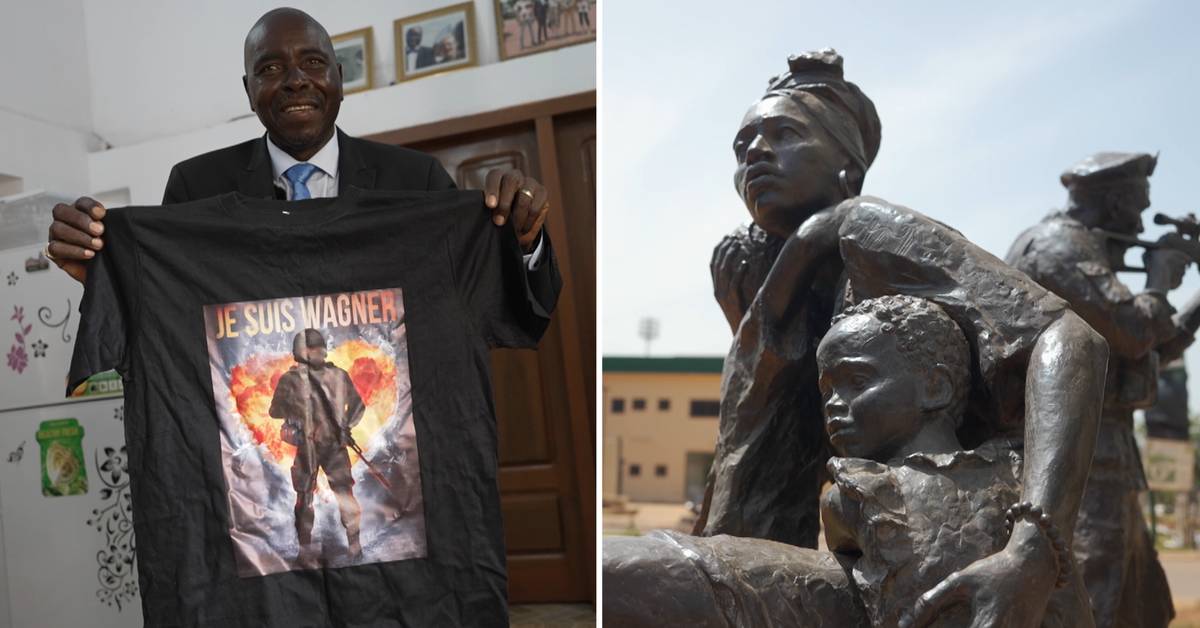In 2017, the UN decided in 2017 to allow Russian instructors in the Central African Republic. Little did they know then that the door was opening for Wagner. When SVT visits the capital Bangui, Wagner's men are everywhere – armed, with faces covered by scarves and in cars without number plates.
"We love Wagner. They have brought us peace," said President Touadéra's spokesman Fidèle Gouandjika.
Few doubt the group's effectiveness in combating rebels in the Central African Republic, at least not in the short term. When the capital Bangui was threatened in 2021, Wagner was key to protecting the government.
Rich natural resources attract
Wagner enters unstable countries to which the West has turned its back because of military coups. Countries with rich natural resources attract.
In 2018, leader Yevgeny Prigozhin's company Meroe Gold signed mining contracts in Sudan with wanted leader Omar al-Bashir in power.
In the same year, Wagner established himself in the Central African Republic and took over mines under violent conditions. In 2019, it fought jihadists in Cabo Delgado, Mozambique, but had to withdraw. It is the group's biggest defeat in Africa. In 2021, Wagner entered Mali, which experienced its second military coup in under a year.
Now there are rumors of white mercenaries in conflict-ridden eastern Congo, there is talk of a Wagner agreement with Cameroon's Atlantic port and Ghana says that Wagner has been seen in the military coup's Burkina Faso.
Reports of abuse
Wagner may be effective in some places, but there are several reports of abuse. And supporting military dictatorships is a risky and short-sighted strategy.
In social media campaigns, Russian anti-Western propaganda is pumped out in African countries.
Discontent over France's colonial past and its continued presence is widespread. The last French troops left the Central African Republic in 2022.
"The Western powers do no good and just want to keep us poor. Wagner gets the job done," says Fidèle Gouandjika.

